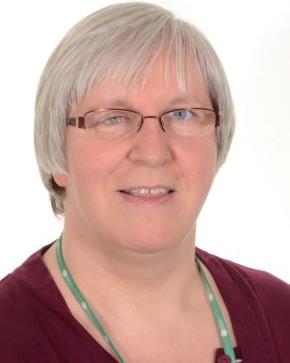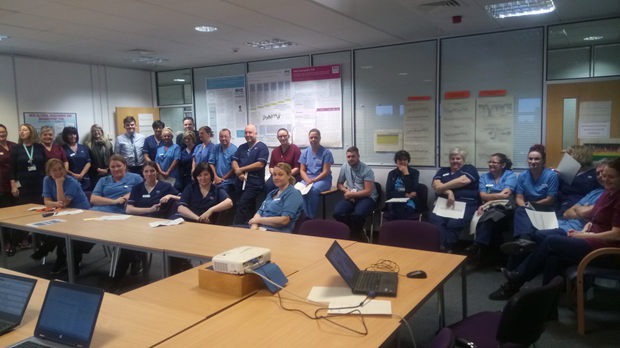
Susan,
We hold a hospital wide meeting at University Hospital Hairmyres every morning. Any member of hospital staff can attend. We do this to ensure we are providing care that is safe, effective and person-centred.
This meeting is referred to locally as the “Onion”, as it requires us to “peel back the layers” to address issues. It has two components — the flow meeting, and the Onion, which is the safety part. The meeting is typically attended by 20-40 staff from nursing, radiography, Allied Health Profession therapists, Scottish Ambulance Service, Estates and Information Technology departments.
We consider the hospitals activity over the past 72hours and what is anticipated for the next 24-48 hours so that we are all sighted on activities and working as a whole system team to provide the highest standards of care for our patients. Any member of staff in attendance is able to identify or raise an issue or concern for consideration and discussion. We focus on three key things:
The first thing we do every morning is to review that any issues raised the previous day have been addressed and if not; what further actions need to be taken to resolve the issue.
We then ask if there have been any patient safety issues over the last 24 hours
Then we ask; what can we do today to make our patients safe, including how we can support requests from palliative care patients to return home.
We record any issues raised and identify the person responsible for ensuring the appropriate action is taken in a timely manner.
The meeting provides a “whole site view” and staff understand that a delay in even one patient’s treatment or discharge can have an effect not only on them but on other patients in other parts of the hospital system. The meeting also provides an opportunity for staff to raise any concerns they might have around issues that could impact on the delivery of safe and effective person-centred care.
A summary of the meeting is produced as a daily “newsletter” and circulated to all hospital staff via the e-mail system detailing the hospitals capacity, performance, safety issues identified and who is the responsible lead to address them; it also details feedback received from people through Care Opinion over the past 24 hours so that staff can consider what people are saying about the care and services they receive.
These meetings can also contribute to “Joy in Work” for staff; in the early days people would put their hands up and say, “Yesterday was really hard, but I’d like to thank Mary from ward five because she was good with an upset patient and delivered great care.” The staff spontaneously started sharing these kinds of stories. One day someone said, “Well, give them a star.” After that, when someone wanted to express appreciation, they’d say, “I want to award a star.” Some days we have none, some days six or seven. All nominations for a star get a mention in the newsletter. It means something to be appreciated by your peers. It definitely contributes to joy in work.
If you have an experience about University Hospital Hairmyres that you would like to share please speak to a member of staff, respond on Care Opinion, or visit the “Your Feedback” Section of the NHS Lanarkshire website to see the other ways to get in touch www.nhslanarkshire.scot
Ensuring every day is Safe, Effective and Person-Centred
Ensuring every day is Safe, Effective and Person-Centred https://careopinionuk-staging.azurewebsites.net/resources/blog-resources/23-images/067592dbc82a4bc6a385fbfacee8df06.png Care Opinion 0114 281 6256 https://www.careopinion.org.uk /content/uk/logos/co-header-logo-2020-default.pngUpdate from NHS Lanarkshire
Posted by Susan Friel, Director of Nursing, Acute Services, NHS Lanarkshire, on
About: NHS Lanarkshire
Thanks for your feedback.

